Improving Quality Of Education For Children Living In India’s Remote, Rural And Marginalised Communities
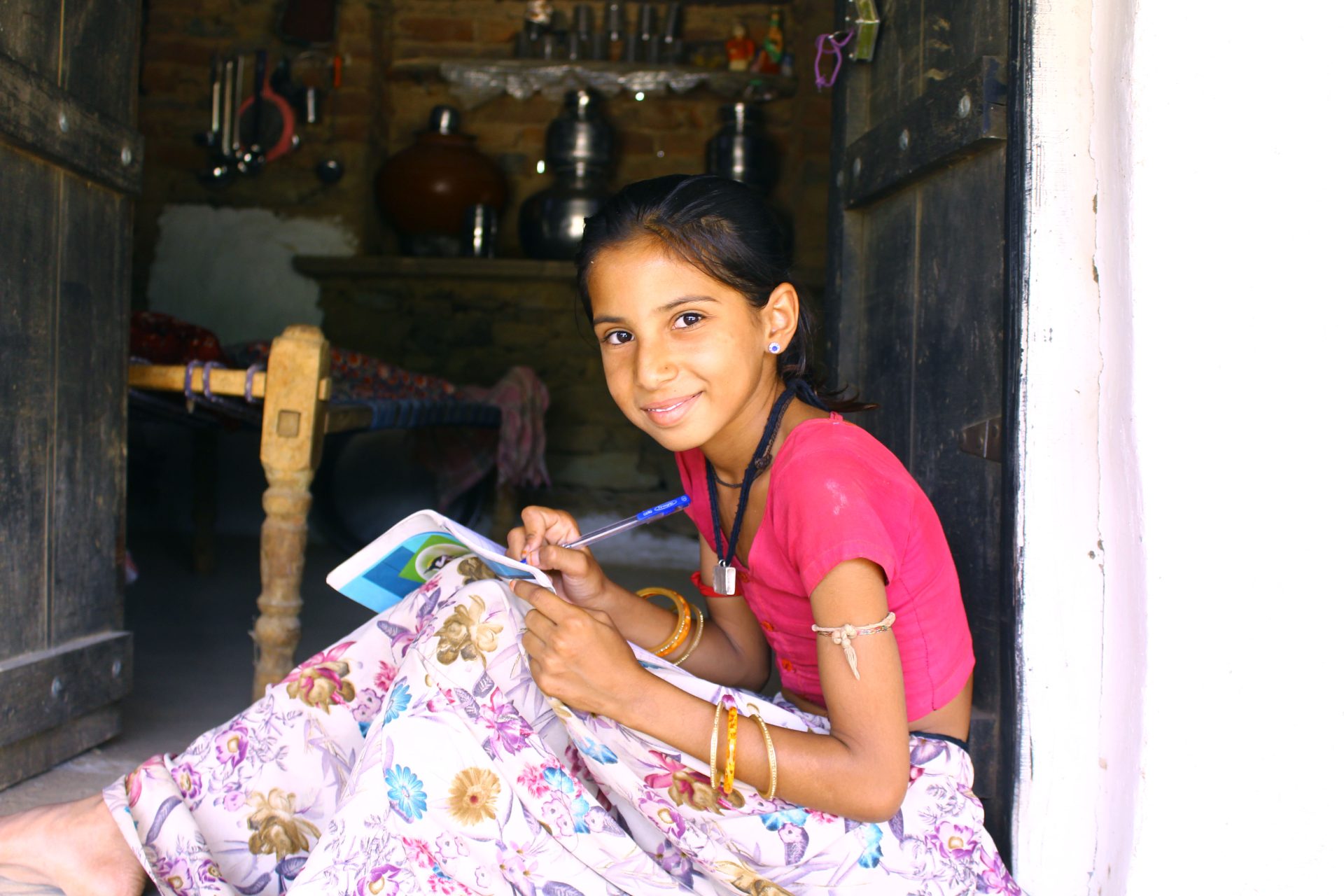
Narayani was identified as an out-of-school girl during a door-to-door survey conducted by Educate Girls. Soon after, efforts commenced to speak with her family to get her re-enroled. After several weeks of persuasion, her family agreed and Narayani was admitted in Grade 4 in accordance with her age.

Having missed out on education in the previous years, Narayani was finding it difficult to cope with what was being taught in class. She was at the risk of dropping out once again.
In another village, Hansraj had been attending school for three years but lacked the literacy and numeracy skills of an average Grade 3 student. During a base-line test, it was found that he could not recognise English alphabets nor identify numbers. He was slightly more confident about Hindi as he could recognise a few alphabets.
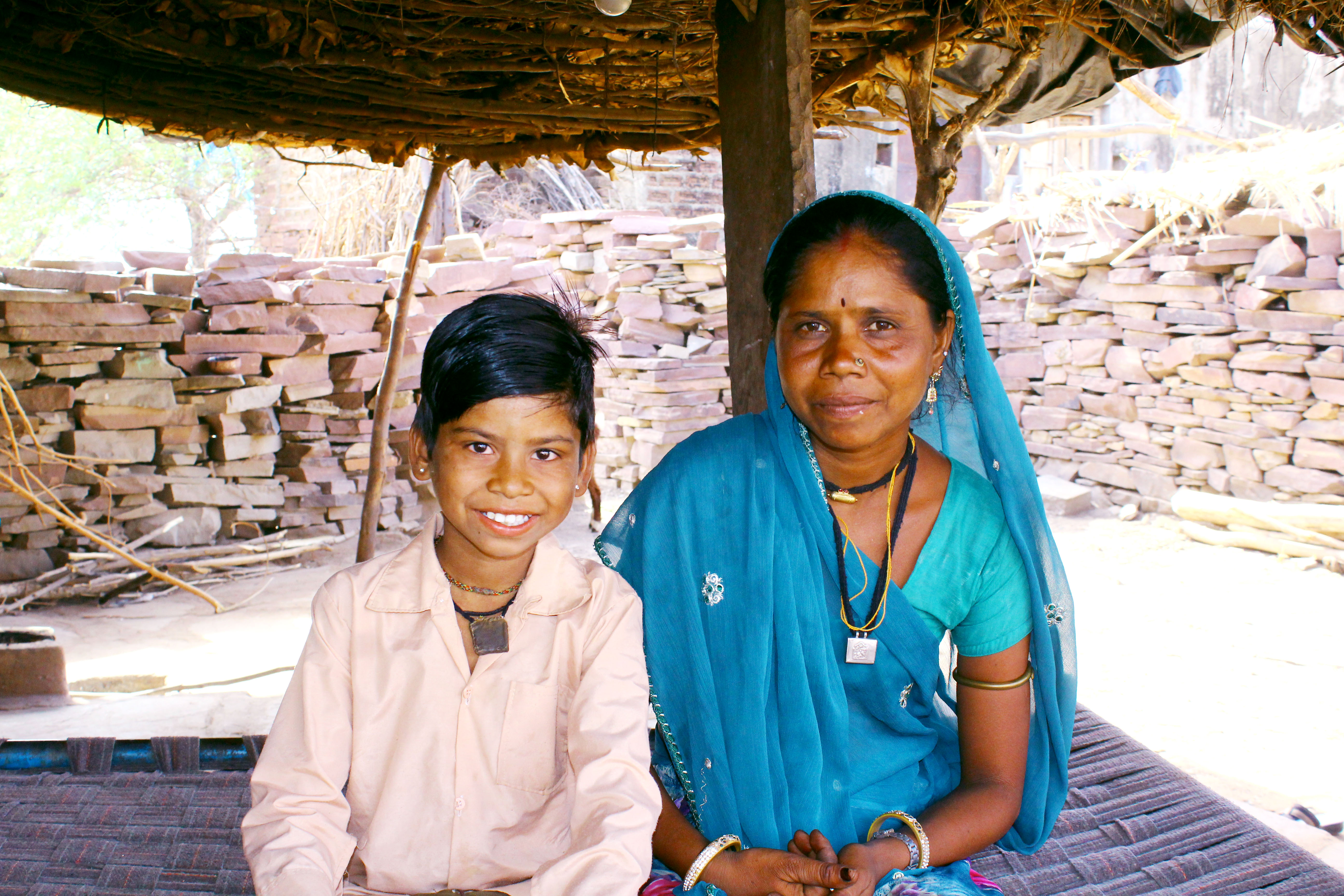
To address the needs of children like Narayani and Hansraj, Educate Girls created and implemented a remedial curriculum, Gyan Ka Pitara (GKP), to ensure foundational literacy and numeracy skills for each child.
Vikram Solanki, who led the DIB implementation in Bhilwara explains the situation, “Throughout the project, we have had to show a great deal of empathy as many of these children are first generation school-goers or are facing other challenges that hamper attendance and learning. Educated parents tend to pass on their knowledge to their children even at home but sadly this wasn’t the case here. Moreover, it’s humanly impossible for a teacher to look into the needs of each child individually and address slow learners separately while also taking care of administration and other responsibilities. This is where we stepped in to bridge the gap. If the needs of these children are not addressed today, they will find themselves lost in upper grades and will eventually either drop-out or have inferior learning outcomes.”
“Educate Girls already had a remedial curriculum that was conducted in classrooms. However, during the DIB, as we collected data on the challenges that children faced individually, this curriculum was revamped with help from a pedagogy expert and was renamed Gyan Ka Pitara, meaning repository of knowledge”, adds Vikram.
Gyan Ka Pitara (GKP) consists of colourful, activity-based tools focused on building micro-competencies in Hindi, English and Math for children in Grades 3, 4 and 5.
The GKP accounts for the needs of the most marginalised children and uses interactive methods such as games, stories, visual tools, flash-cards etc. The kit also includes multiple worksheets for individual practice which helped the staff and even the school teachers keep track of every child’s progress. Hundreds of children have benefitted immensely from the GKP and shown improvement in their learning outcomes.
A case in point – endline tests showed a substantial improvement in learning levels of both Narayani and Hansraj.
Narayani, who could benefit from the remedial curriculum for 2 academic years is now almost at par with her well-performing classmates. She can now fluently read sentences and stories in Hindi with fewer mistakes, can solve certain problems in Math correctly and can recognise capital and small letters of English alphabets. On the other hand, Hansraj, who was exposed to GKP for three years, can now not only recognise numbers and alphabets but can also solve problems and read paragraphs in both Hindi and English. In the third and final year of the DIB implementation, GKP kits made their way into the homes of some students like Ankush Dhakad – another beneficiary of the program, who was often absent from school.
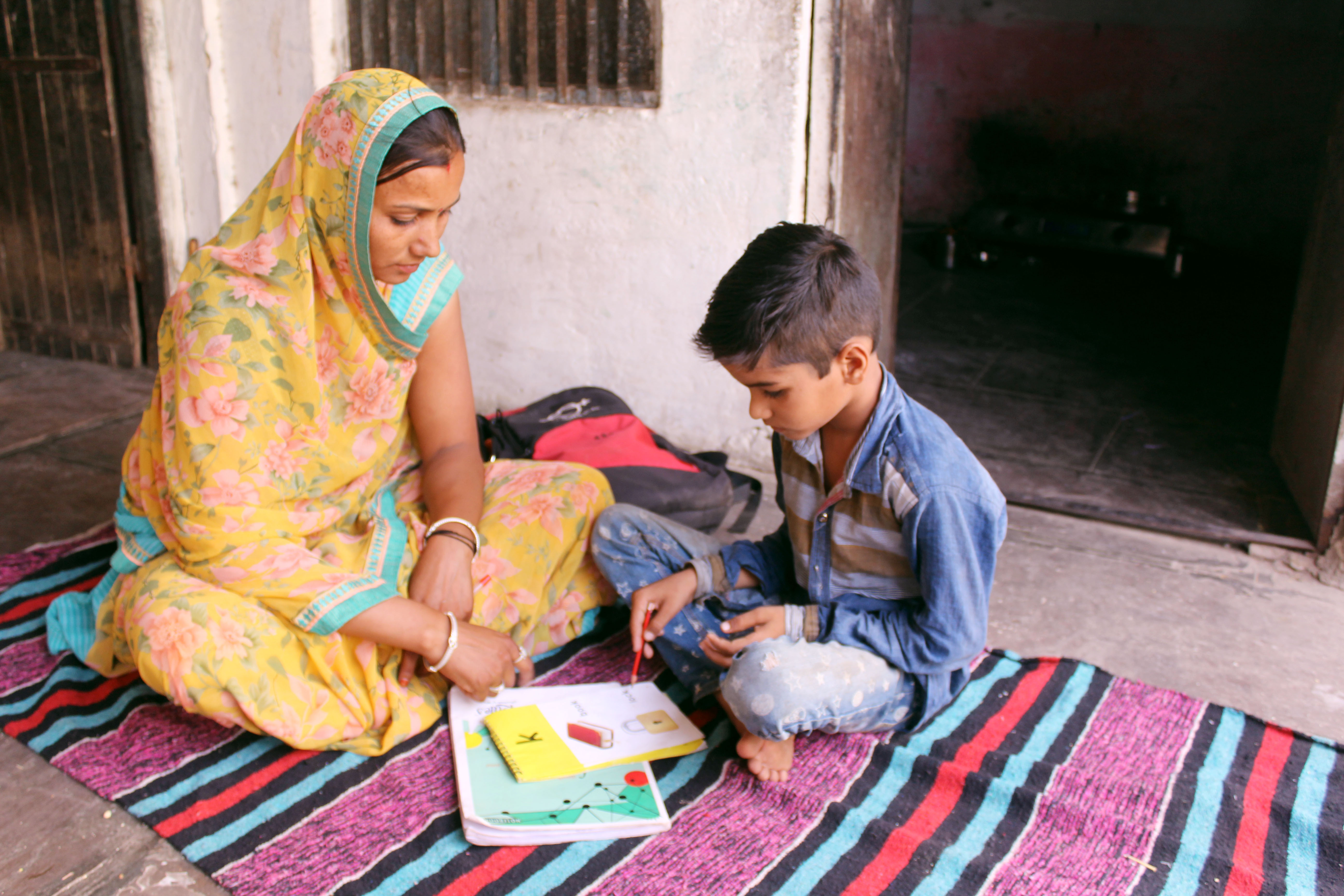
After the death of his father, his mother handed over his care and upbringing to his paternal grandparents. The ailing senior citizens weren’t greatly invested in Ankush’s education as there so much work to take care of at home and on the fields. Their apathy towards the boy and Ankush’s disinterest in studies were the reasons behind his constant absenteeism. So, while he was a student in school records, unfortunately, he wasn’t learning much.
Speaking about Educate Girls’ strategy in the final year, Vikram expounds, “In the first two years, we had done everything possible to increase learning levels of children and made significant progress. However, we were still far away from reaching the set targets. Before the third year started, we now had a chance to look closely at two years’ of data that then clearly revealed that children who were often not in classroom were lagging behind, and this reflected on the overall results. So we thought, if the child cannot come to school then we should go to the child! Our field workers and volunteers have provided home-based teaching using GKP, meeting each child at the point of their need.”
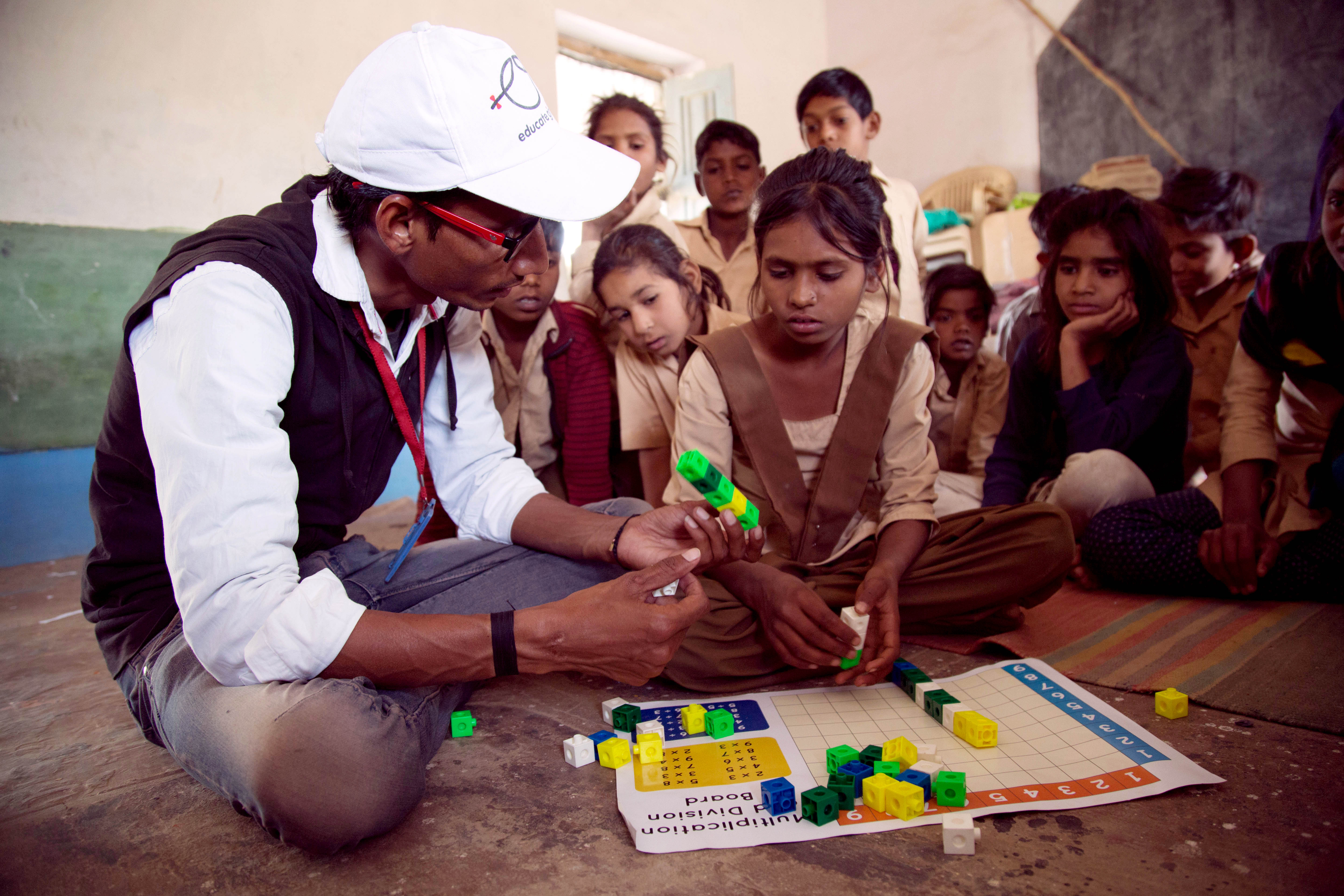
The result of these efforts can be seen with children like Ankush, who has made good progress and moved up significantly in his learning levels in just a single year.
“In the third year, we used data to study the progress of each child and tailored our exercises to meet their individual needs. Our teams spent extra time with children with special needs and slow learners in school. GKP sessions were even conducted at homes after school and during holidays as well. We were very clear that no child had to be left behind”, adds Vikram.
On its completion in 2018, the Educate Girls’ DIB achieved 160% of the final learning target, reaching over 7,000 children.
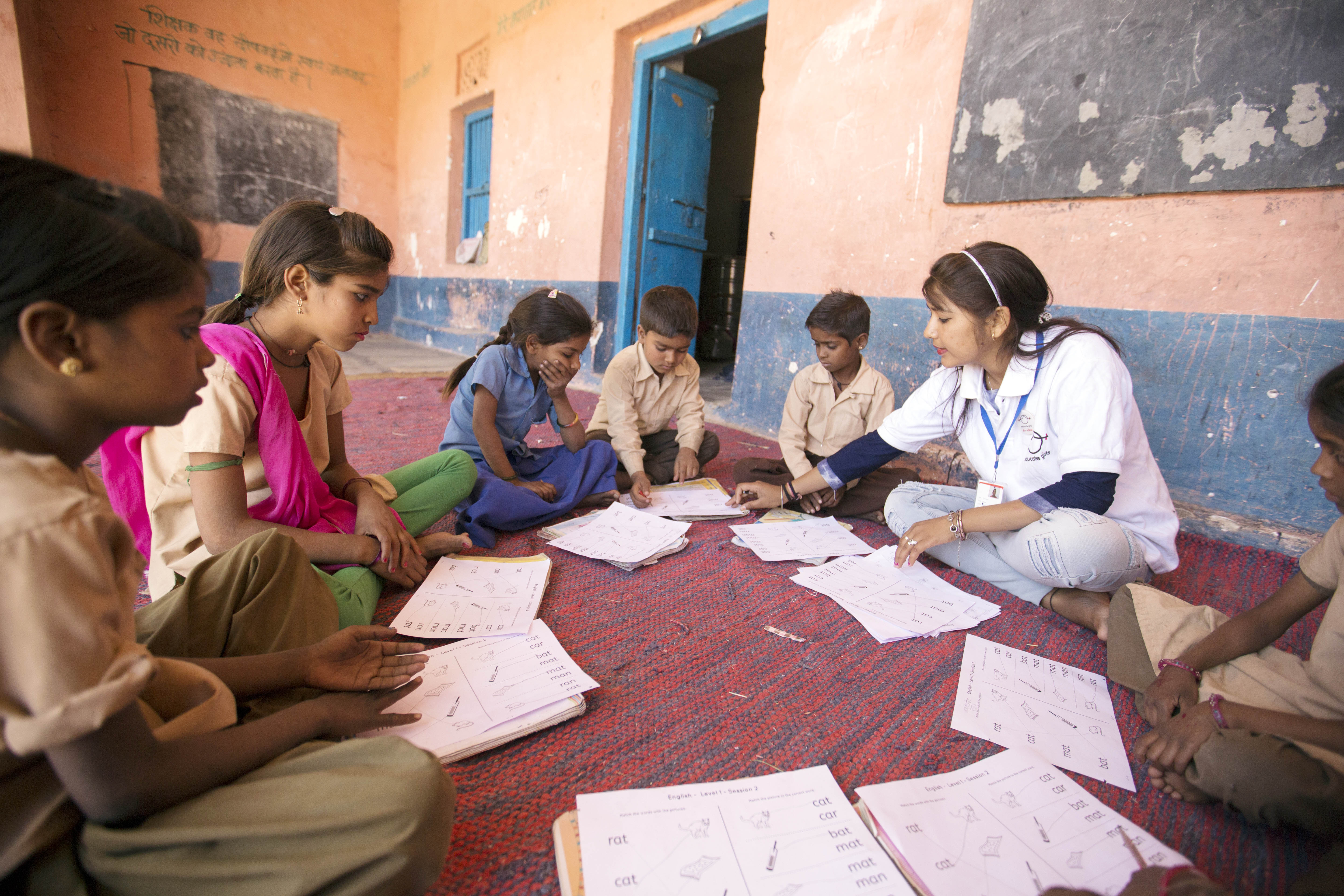
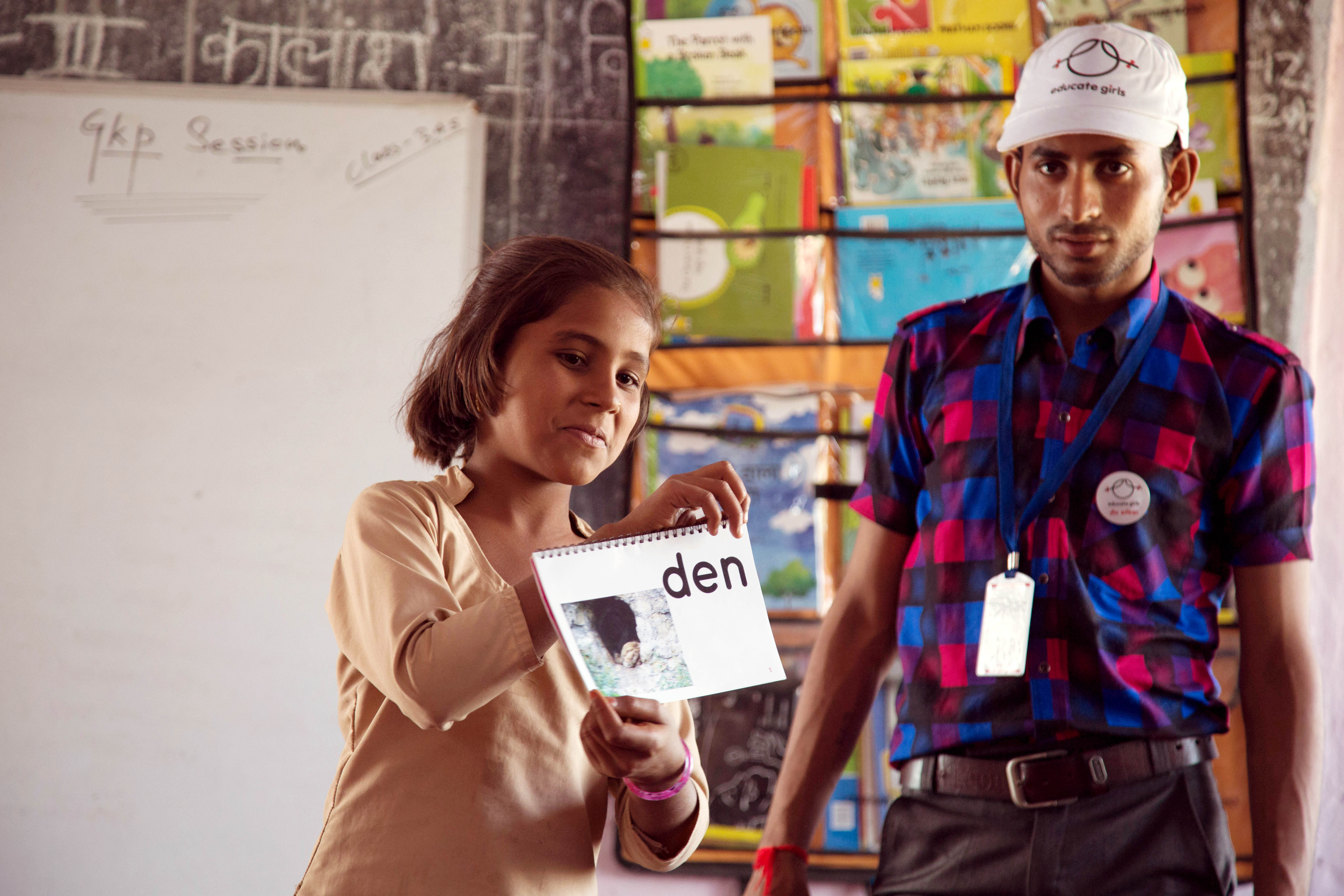
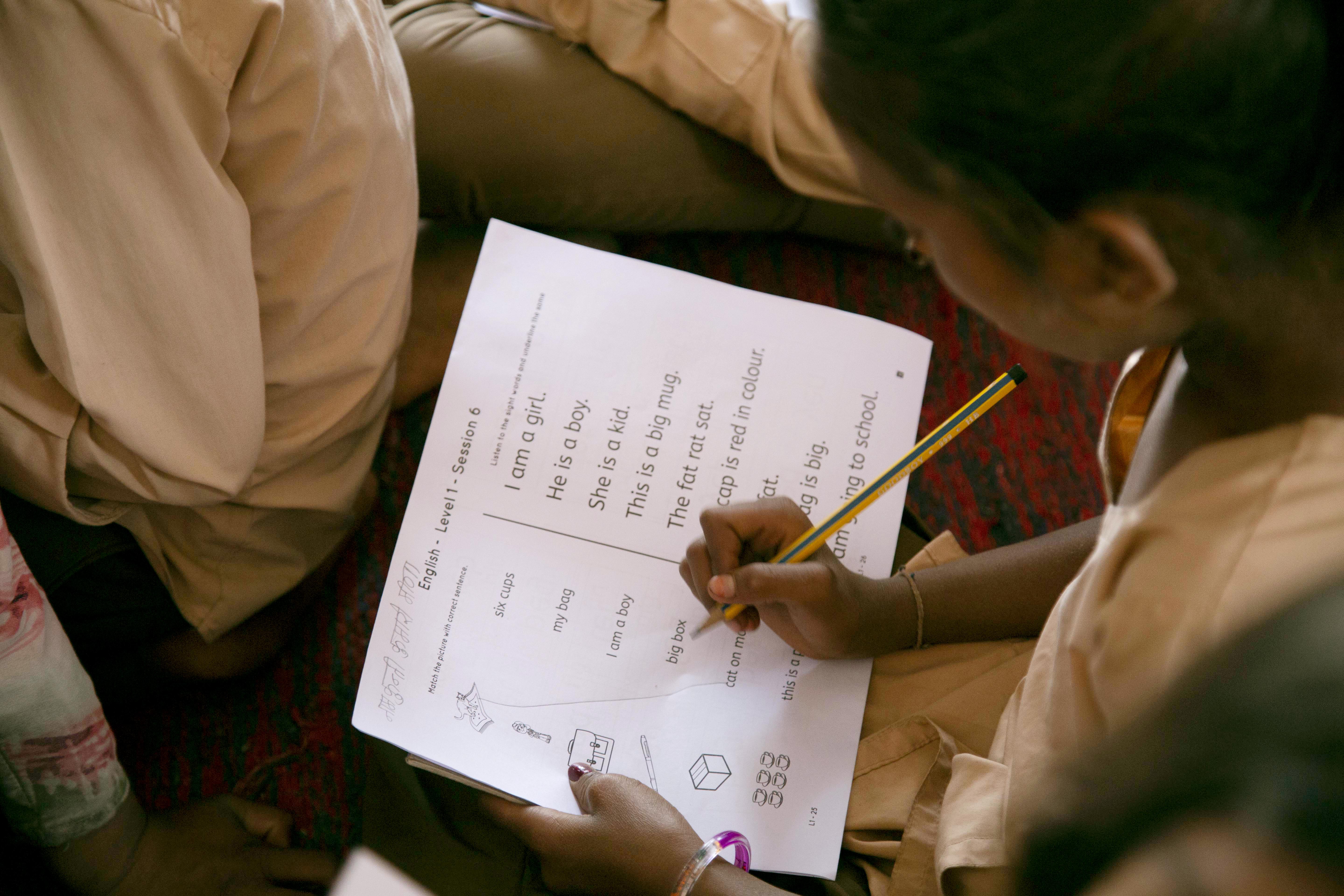
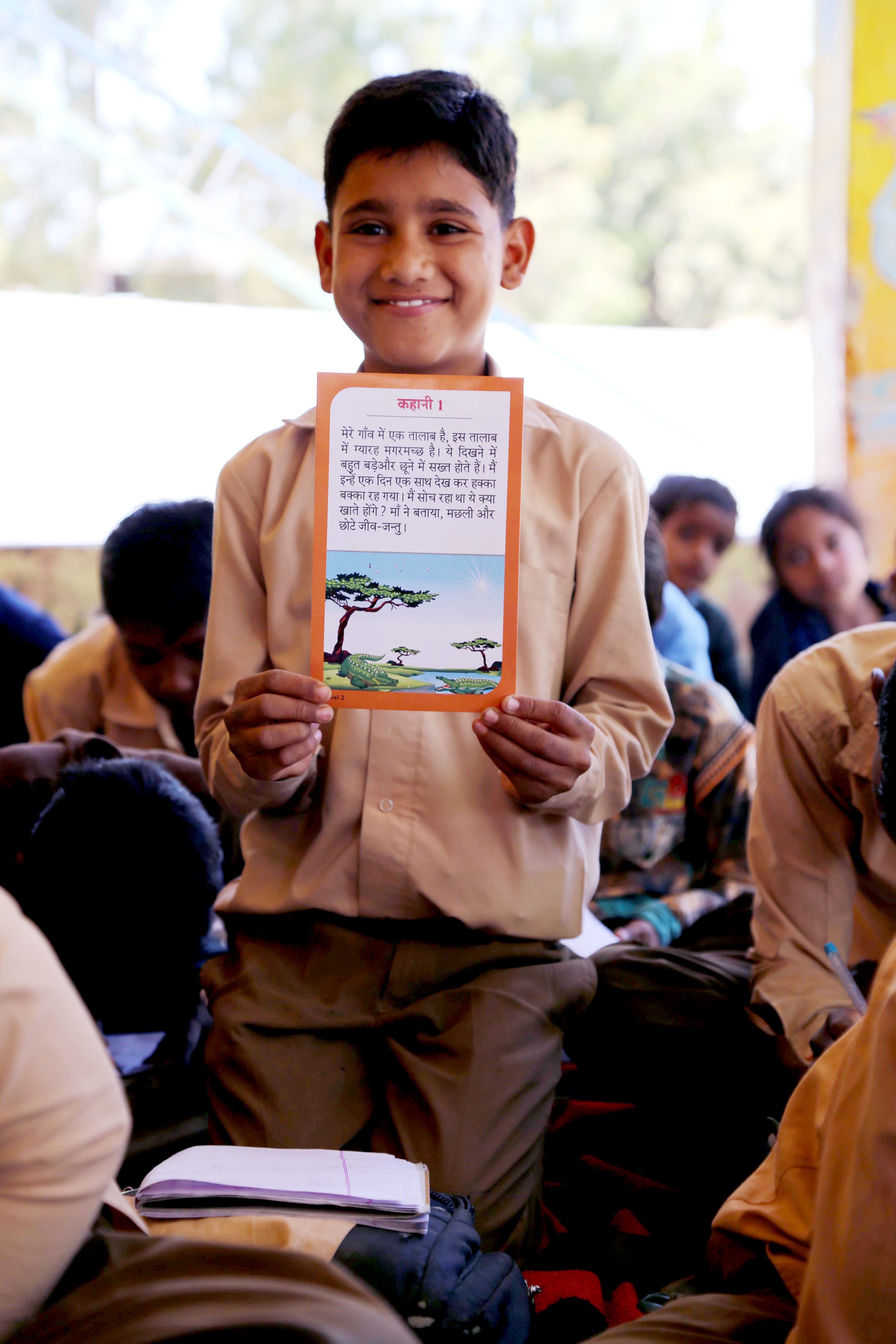
Read more about #EducateGirlsDIB
ENROLING OUT-OF-SCHOOL GIRLS IN MARGINALISED, RURAL COMMUNITIES OF INDIA
Educate Girls
Posted on January 28, 2019
Interested in contributing towards
educating girls?
Quick Links
Resources & More
Keep helping. Stay Updated.
Child Protection Policy | Privacy Policy | Terms of Use | Employee Login | IT Assets
Educate Girls is a project of Foundation To Educate Girls Globally (FEGG) | FEGG is registered in India under Section 8 of the Indian Companies Act, 2013.
© 2018 All rights reserved. Educate Girls.

